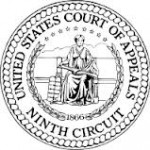 Good News appealed from the district court’s determination on remand from the Ninth Circuit that the Town’s ordinance restricting the size, duration, and location of temporary directional signs did not discriminate between different forms of noncommercial speech in an unconstitutional manner. In Reed v. Town of Gilbert, the court held that the ordinance was not a content-based regulation and was a reasonable time, place, and manner restriction. Accepting the court’s opinion in Reed as law of the case, the court concluded that the Sign Code was constitutional because the different treatment of types of noncommercial temporary signs were not content-based as that term was defined in Reed, and the restrictions were tailored to serve significant government interests. Good News’ other challenges did not merit relief. Further, the court determined that the amendments to the Sign Code made by the Town during the pendency of the appeal did not moot this case and that Good News could file a new action in the district court should it wish to challenge the new provisions of the Sign Code.
Good News appealed from the district court’s determination on remand from the Ninth Circuit that the Town’s ordinance restricting the size, duration, and location of temporary directional signs did not discriminate between different forms of noncommercial speech in an unconstitutional manner. In Reed v. Town of Gilbert, the court held that the ordinance was not a content-based regulation and was a reasonable time, place, and manner restriction. Accepting the court’s opinion in Reed as law of the case, the court concluded that the Sign Code was constitutional because the different treatment of types of noncommercial temporary signs were not content-based as that term was defined in Reed, and the restrictions were tailored to serve significant government interests. Good News’ other challenges did not merit relief. Further, the court determined that the amendments to the Sign Code made by the Town during the pendency of the appeal did not moot this case and that Good News could file a new action in the district court should it wish to challenge the new provisions of the Sign Code.
Reed, et al v. Town of Gilbert, Arizona, et al
February 17, 2013 by Leave a Comment
Speak Your Mind
You must be logged in to post a comment.